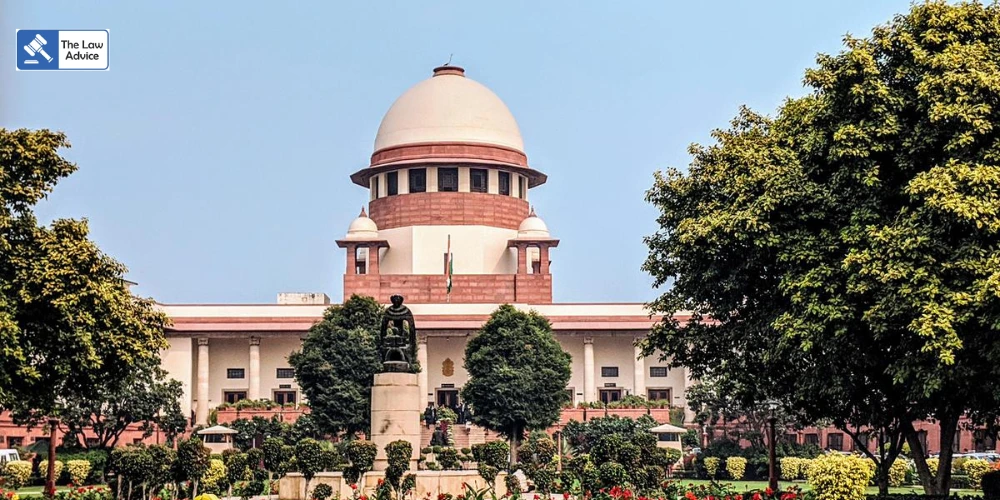New Delhi, August 18, 2025
The Supreme Court on Monday declined to interfere with the Bombay High Court’s 2022 ruling that had quashed the First Information Report (FIR) registered against senior officials, including Praful Khoda Patel, in connection with the death of seven-time Member of Parliament (MP) Mohanbhai Sanjibhai Delkar.
A three-judge bench comprising Chief Justice of India BR Gavai, Justice K. Vinod Chandran, and Justice N.V. Anjaria dismissed the Special Leave Petition (SLP) filed by Delkar’s son, Abhinav Mohan Delkar, who had sought reinstatement of the criminal proceedings against the accused persons.
Delivering its order, the bench said: “HC order confirmed and dismissed the SLP.” A detailed judgment is awaited. The apex court had reserved its verdict on August 4, 2025, after hearing extensive arguments from both sides.
Mohan Delkar, a veteran politician and independent MP from Dadra and Nagar Haveli, was found dead on February 22, 2021, in a hotel room at Sea Green South, Marine Drive, Mumbai. He left behind a note in which he allegedly expressed anguish over harassment and humiliation by local administrators and political opponents.
Following his death, his son Abhinav Delkar filed an FIR against Praful Khoda Patel (then Administrator of Dadra and Nagar Haveli and Daman and Diu), Collector Sandeep Kumar Singh, Superintendent of Police Sharad Darade, and several other officials.
The FIR alleged that the accused had:
• Subjected Delkar to continuous harassment and humiliation in public functions.
• Misused their official position to defame and harass him.
• Sought to take control over a college run by Delkar.
• Attempted to block his electoral prospects in upcoming polls.
The complaint invoked serious charges under the Indian Penal Code (IPC) – Section 306 (abetment of suicide), Section 506 (criminal intimidation), Section 389 (putting a person in fear of accusation of offence), and Section 120-B (criminal conspiracy) – along with provisions of the Scheduled Castes and Scheduled Tribes (Prevention of Atrocities) Act, 1989, citing Delkar’s tribal background.
On September 8, 2022, a division bench of Justices Prasanna B. Varale and Shrikant D. Kulkarni of the Bombay High Court allowed a series of writ petitions filed by the accused, holding that the FIR was unsustainable.
The High Court’s reasoning included:
1. Allegations based on perceptions – The Court found that much of the FIR was premised on Delkar’s impression of humiliation and harassment rather than objective evidence.
2. Lack of material on conspiracy – For an offence under Section 120-B IPC, the law requires evidence that multiple accused acted together with a shared objective. The FIR, however, contained only broad allegations without any specific act pointing to a conspiracy.
3. Failure to establish abetment – Citing the Supreme Court ruling in Madan Mohan Singh v. State of Gujarat, the High Court noted that to constitute abetment under Section 306 IPC, a “positive act” must be demonstrated. Mere harassment or differences, without a direct instigation or aiding of suicide, would not satisfy the legal test.
4. No evidence of motive – The claim that the accused sought to take over Delkar’s educational institution or prevent his electoral participation was not supported by material evidence. In fact, Delkar had contested and won elections as an independent candidate.
5. Application of Bhajan Lal guidelines – Referring to the landmark Supreme Court judgment in State of Haryana v. Bhajan Lal, the High Court held that the case fell under the category of instances where continuation of criminal prosecution would amount to an abuse of process of law.
On these grounds, the High Court quashed the FIR and related criminal proceedings against the nine accused.
Challenging the High Court’s order, Abhinav Delkar approached the Supreme Court, urging restoration of the FIR to ensure accountability of the accused officials. He argued that his father, a respected tribal leader, had endured systematic political harassment and victimisation which ultimately drove him to suicide.
The respondents, however, defended the High Court’s findings, asserting that the FIR was vague, politically motivated, and lacking in legal foundation. They emphasized that continuation of criminal proceedings without credible evidence would subject senior officials to needless prosecution.
After hearing the matter, the Supreme Court bench sided with the High Court, observing that the FIR did not disclose the essential ingredients of abetment or conspiracy. The apex court also underscored that criminal prosecution must be backed by concrete material and not mere allegations of personal perception or political rivalry.
By dismissing the SLP, the Supreme Court has effectively put an end to the criminal proceedings against Praful Khoda Patel and other accused officials.
The ruling reaffirms long-standing judicial principles that:
• Abetment to suicide requires a clear, positive act of instigation or aiding.
• Bare allegations and subjective impressions cannot be the basis of criminal trials.
• The Bhajan Lal guidelines continue to be the touchstone for testing whether an FIR deserves to be quashed.
• Courts must remain vigilant against the misuse of criminal law for political purposes.
This decision also brings closure to a high-profile case that had raised questions about the intersection of politics, governance, and the criminal justice system in Union Territories.
Case Details
• Case Title: Abhinav Mohan Delkar v. State of Maharashtra & Ors.
• Case No.: Crl.A. No. 002177 – 002185 / 2024
